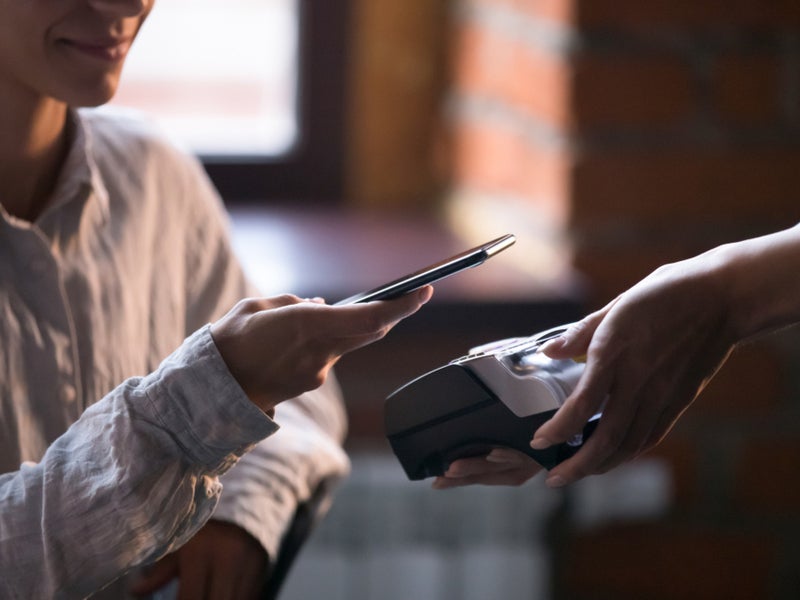With technological progress and the life of the everyday consumer shifting more towards digital, payment companies are pushing ahead with experimenting and innovating ways to make transactions more convenient and simple. Increasingly, payments are becoming a feature of products and services rather than a whole separate industry meant to enable transactions.
Listed below are the key themes that will impact the payments sector, as identified by GlobalData.
AI
AI and machine learning are largely being leveraged in payments in order to improve fraud detection and prevention. This is the most immediately applicable use case for the technology and helps to address the trade-off of customer convenience versus data security, which has historically defined fraud management, by allowing for authentication based on dynamic recognition of consumer usage patterns, rather than requiring inconvenient manual authentication. Other specific use cases for this technology in payments are more emergent.
Blockchain
Blockchain technology is primarily being looked at in payments as an alternative (faster, cheaper) means of transferring fiat currency via a digital ledger. Few major payments companies in the developed world are seriously looking at cryptocurrencies or at a truly decentralised model, as they involve a radical restructuring of the entire financial system.
Currently, the systems are too new and complicated to use in order to benefit consumers for day-to-day transactions, but the potential remains should a major economic disruption (such as Covid-19) create a drive for consumers to move to cryptocurrencies.
Cloud
Cloud computing is now a common technology among the more tech savvy businesses in payments, particularly the payment processors and fintechs. This technology has allowed for smaller players, particularly challenger banks, to scale and enter the market more quickly, while many of the incumbent banks have yet to migrate from their in-house IT systems to cloud-based systems.
Security
Security has become increasingly critical for payments companies. There are two key aspects to security in payments. The first is the cybersecurity of the organisation in general: its vulnerability to attacks on its data centres or its payment acceptance hardware. The second is its vulnerability to payment fraud, which is being tackled via technologies such as AI (in behavioural recognition and the creation of dynamic fraud recognition rules) and biometrics (reducing the reliance on consumer knowledge for authentication).
Mobile
Mobile as a platform has really started to take off in payments. After almost a decade of hype and failed product launches, mobile payments at the POS are becoming widely adopted in developed markets. In developing markets – especially China and Kenya – mobile payments are the dominant way to pay for goods and services at the POS. Far more unequivocally successful is mobile as a platform for online payments, which is driving much of the strong growth of e-commerce overall.
Internet of Things
The IoT offers a wide range of opportunities for payments to be performed on new devices. The main emergent form factor in payments is the smartphone, not the wristband, jacket, car, fridge, or even the AI assistant device (e.g. the Amazon Echo). All of these devices can contain the hardware and software necessary to perform payment transactions, but each exist in their own specific niche – wristbands for closed-loop payments at events, cars for payment at the fuel pump or electric car recharger, AI assistants for voice-activated e-commerce.
Ecosystem
Trends of technological development and de-globalisation are creating a critical need for wide reaching company ecosystems in order to tackle a fragmented payments market. Consumer choice in payment tools, both online and offline, is increasing in absolute terms (as more options such as mobile wallets, instant bank-to-bank payments, and buy-now-pay-later services reach maturity) because each country and geographic region has a different set of options available.
Cards still exist as ‘universal’ payment tools, but as individual markets move towards alternatives, merchants need to accept an increasingly broad spectrum of options, especially if selling online. As a result, payment processors are consolidating in order to build large, robust ecosystems for payment acceptance.
Regulation
Regulation is only becoming more of a burden for traditional financial services players, while many fintechs avoid the restrictions of regulation by not trading as banks. Inevitably, the tech giants and unicorns of the world must enter the same playing field as the incumbents when playing in the financial services space; while onerous regulation would crush a growing fintech company, a lack of limits overly favours tech companies over banks.
E-commerce
E-commerce is the single strongest area in payments overall in terms of growth, and while it may never fully replace in-store payments, developments in AI and logistics technology as well as the high convenience factor of online shopping continues to drive the market forward. Increasing internet penetration and improvements to internet speed (via technologies such as 5G) will also drive this market forward by expanding its user base. Covid-19 is accelerating the shift towards e-commerce as consumers avoid going to physical stores, and this will boost growth even higher than previously anticipated.
Covid-19
Covid-19 is easily one of the most impactful events in recent history. The world needed to adapt almost overnight to social distancing, working from home, and an upended economy. Payments however, are positioned to benefit from a massive acceleration towards a truly digital and global economy. Transactions were already seeing a move towards digital before the pandemic; today however, cashless payments are the norm, as most brick-and-mortar shops are closed and people order online.
This is an edited extract from the Payments Sector Scorecard – Thematic Research report produced by GlobalData Thematic Research.








